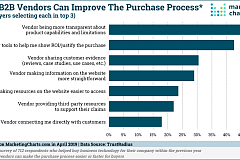 Less than a third of employees receive meaningful feedback from their superiors. While it's true that giving feedback can be intimidating, it's in your best interest to master this practice. Constructive feedback can help build trust, transparency, and clear communication.
Less than a third of employees receive meaningful feedback from their superiors. While it's true that giving feedback can be intimidating, it's in your best interest to master this practice. Constructive feedback can help build trust, transparency, and clear communication.
Further, as a manager, you have the power to help your staff members advance their careers through professional growth. Constructive feedback plays a key role in personal and professional development and it's never too late to learn new skills and get better at what you do. Your employees expect you to help them reach their full potential.
By offering meaningful feedback, you will not only build more effective teams, you will also improve your company's bottom line, in part by reducing employee turnover, increasing engagement, and lowering absenteeism.
But how does constructive feedback mean and how does it differ from criticism? Most importantly, how does it benefit managers and employees? Here are the essentials:
What Is Constructive Feedback in the Workplace?
Feedback isn't always meaningful or useful.
For example, if someone tells you that your latest project isn't up to par but doesn't go into detail, you won't know what you did wrong. But if that person makes helpful suggestions and points you in the right direction, you'll have a chance to improve your work.
[quotesright]Constructive feedback consists of specific, actionable suggestions that lead to better results. Whether it's positive, negative, or neutral, it's meant to lead to a positive outcome.[/quotesright]
Note that constructive feedback is different from criticism.
Unlike criticism, constructive feedback is delivered in a way that doesn't cause resistance, shame, guilt, or low self-esteem. Its role is to help employees better themselves and correct their mistakes.
If you tell someone that his work is well-organized, you're offering positive constructive feedback. When you tell an employee that his work could be better structured, you're providing negative constructive feedback.
In either case, your comments will help others improve their work.
How Effective Feedback Can Build Organizational Trust
Organizational trust is strongly connected to a company's culture, values, and leadership.
Constructive feedback can build organizational trust by reinforcing positive behavior. Over time, it may increase the confidence that employees have in what they know, their leaders, and their colleagues.
Each time you offer constructive feedback, you have the chance to connect with your staff. Connection builds trust and makes it easier to convey your expectations to employees.
By providing feedback, you also have the opportunity to acknowledge hard work. This can further increase the trust between employees and their leaders.
Moreover, constructive feedback can boost employee morale, prevent misunderstandings, and increase job satisfaction. Sometimes, it facilitates collaboration. These factors contribute to organizational trust and can strengthen your company's culture.
Learn the Art of Constructive Feedback
The benefits of constructive feedback go beyond better work performance.
This practice can improve corporate communication and fuel professional growth. In the long run, it may strengthen organizational trust and drive innovation.
Not sure how to frame your feedback? Our experts know how to address the challenges of business leadership and management. Get in touch and let's set up a time to talk. Brian Tracy USA: 877.433.6225 Email Me feedback@focalpointcoaching.com














